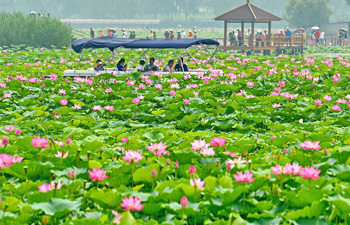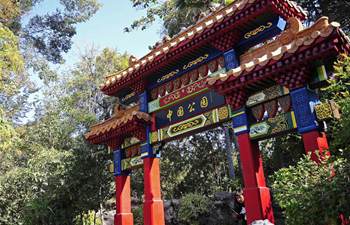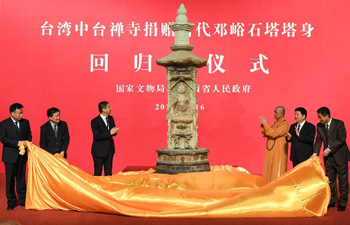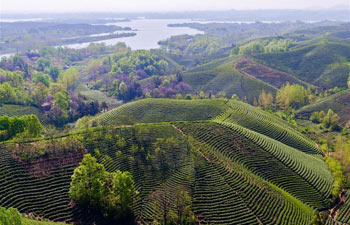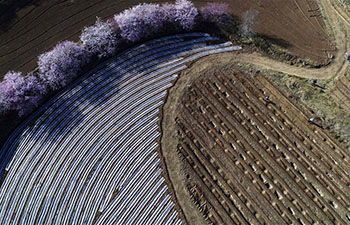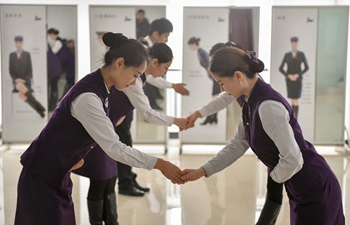BEIJING, April 17 (Xinhuanet) -- Like all his fellow natives, Zhang Wuyang is looking forward to the BRICS summit to be held in September in Xiamen, a southeast China’s port city.
However, as an agate businessman, Zhang expects more from the summit — to make agate artworks the official souvenirs of the grand event.
“Agate products are typical of made-in-Xiamen,” said Zhang, 52, head of the local agate association.
“Though there’re no agate deposits in and around Xiamen, it boasts the world’s largest agate industry," he added.
In fact, Xiamen, or its Dongpu village to be more exact, began to embrace agate business only 25 years ago by chance.
A Taiwan businessman happened to take Zhang’s taxi at the Xiamen airport.
Learning about his plan to build a factory to produce agate bracelets, Zhang recommended his home village Dongpu, a remote village still struggling to break the chain of poverty.
After two years, Zhang took over the factory.
Zhang and his partners carried bags of bracelets to sell all over China. And by the end of 1995, they had done a good marketing by earning back the buyout money borrowed from their relatives.
“After we harvested the first pot of gold,” said Zhang, “other villagers got inspired and soon followed suit.”
Nowadays, nearly all 400 households of 2,000 Dongpu villagers engage in the agate business, turning out all kinds of agate products, with bracelets accounting for 90 percent of the world market, according to Zhang. “We have been exploring new frontiers by introducing various innovations, especially the art of cutting,” said Zhang. “That’s our secret to keep the agate industry vigorous.”
Harder, cheaper and more colorful than jade, agate stones prove unique to inspire and challenge artistic creation.
Dongpu has also become the world hub of raw agate stones, importing them from more than 10 countries, including BRICS countries, and handling 80 percent of their imports in China.
Zhuang Chunjing, 34, is one of the Dongpu’s agate ore traders. He arrived in Madagascar three years ago and started business in three months.
“In many countries, we Dongpu traders turn valueless agate stones into a treasure for locals,” said Zhuang, “and they all know Dongpu.”
In recent years, Dongpu’s agate industry experienced a decline due to the slowdown of China’s economy.
According to Zhang, the number of TEU(Twenty-foot Equivalent Unit) of agate stones import dwindled from 100 to about 50 monthly, and the yearly turnover of Dongpu’s agate business shrunk to half its all-time high.
Fortunately, the younger generation, the post-80s or 90s college graduates, has been rising up, injecting much-needed new blood into it.
Chen Bochao, 27, has focused on establishing an online trading platform since 2013.
“I insist on online and high-end marketing, but my father can’t understand such a way of doing business,” said Chen, son of an agate businessman in Dongpu.
Chen has recruited more than 30 agate artists online, who accept his orders or sell their artworks through his platform.
Chen also cooperates with Zhuang in exploring new methods of marketing, such as introducing new species to meet the needs of cutters and selling raw agate stones through crowd-funding.
“Our elders tend to continually enlarge the market share,” said Zhang Zhimin, 38, an agate cutter. “We younger generation pay more attention to market segmentation and artistic value of the agate business.”
Both Zhang Zhimin and Chen seek to encourage talented youth to become agate designers and artists.
“Agate consumers are becoming younger,” said Zhang Zhimin. “We have to change to keep the agate business young.”





